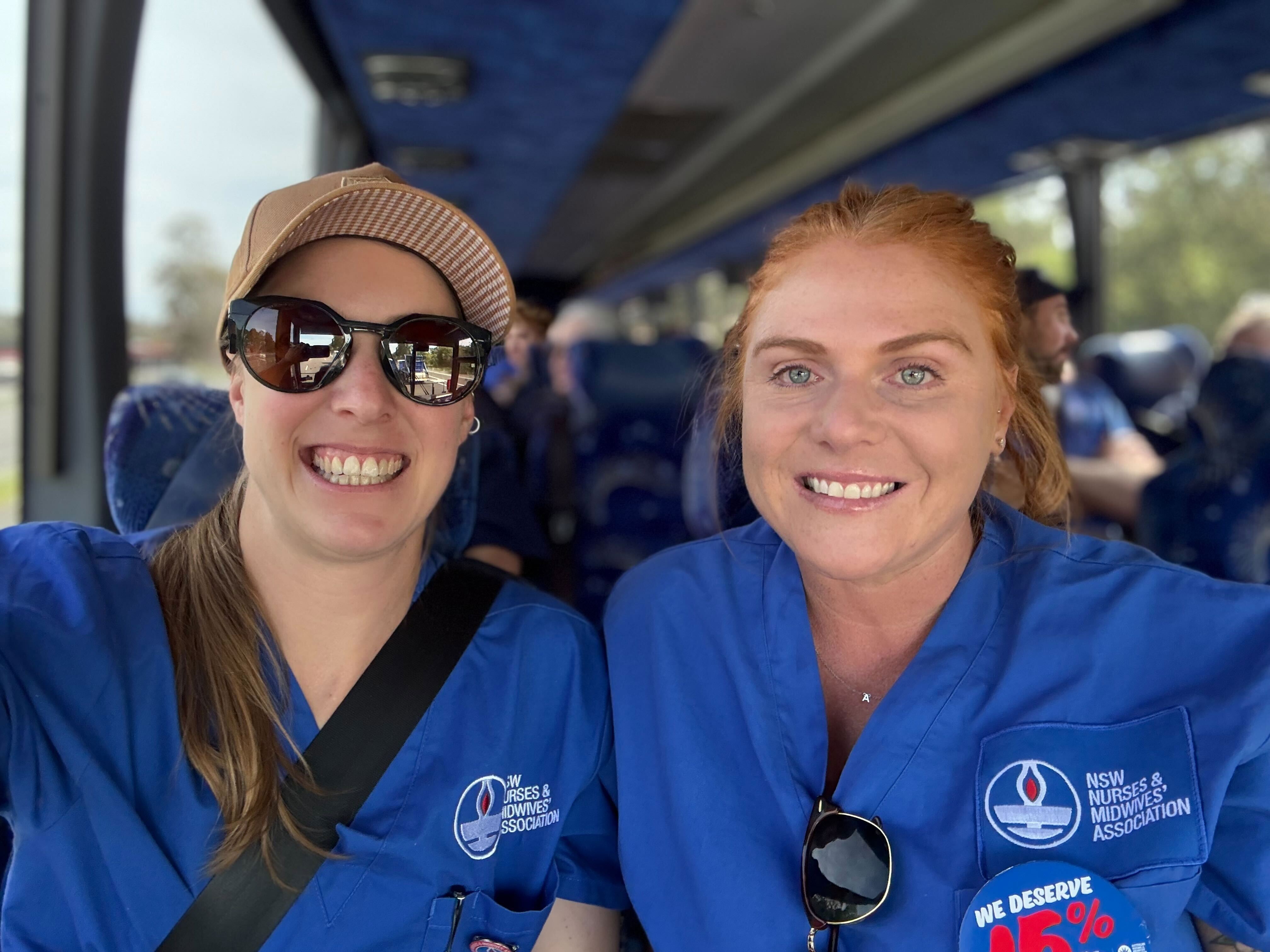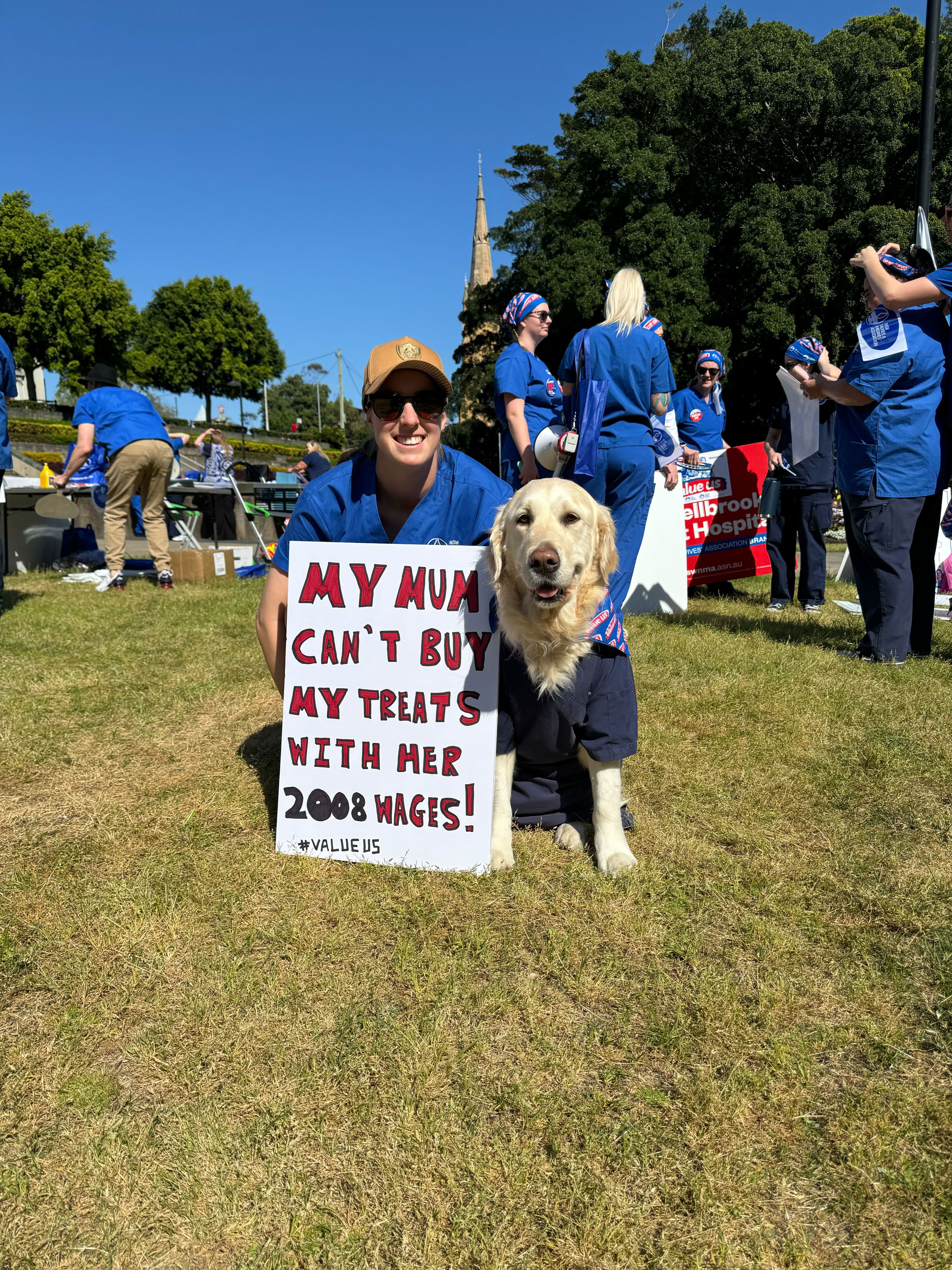
The 32-year-old, who lives in Newcastle in NSW, often worries about rent stress and said she simply can't afford a mortgage under the state's award pay rates.
Ashleigh Clarke has been a nurse for nearly a decade but the idea of affording a house is still a pipe dream.
The 32-year-old, who lives in Newcastle in NSW, often worries about rent stress and said she simply can't afford a mortgage under the state's current award pay rates.
Many of Clarke's colleagues are under the same financial strain and it's bleak proof of how Australian healthcare workers are being locked out of the housing and rental market.
READ MORE: Mysterious streak of light in night skies explained

Clarke's woes about low pay and home ownership slipping away sadly aren't unique.
Fresh data from Anglicare Australia reveals the country's housing crisis has led to countless essential workers such as nurses, aged care and ambulance workers being unable to afford rent.
"If I was to seek another [affordable] rental in this current climate or pursue a mortgage, that's out of my reach," Clarke, an emergency room nurse, told 9news.com.au.
"We have looked into [a mortgage] with both of our incomes, and we can't afford it.
"Mortgage prices are astronomical and even closer to my workplace [in Maitland] are out of reach."
Anglicare's Rental Affordability Snapshot included a breakdown of affordable rentals across the country.
It looked at 45,115 rental listings in March 2024 and found just 2.2 per cent – 976 of them – were affordable for the average ambulance worker.

Only 1.5 per cent or 696 were affordable for aged care workers and just 1.4 per cent, a total of 629 rentals, for nurses.
Early childhood workers and construction workers only had 0.9 per cent of the available rentals affordable for their average wages.
The instability of rent is also a great concern for healthcare workers like Clarke.
"You could be given notice and kicked out tomorrow," she said.
"If we were to get kicked out, I would be extremely stressed about finding a place."
READ MORE: Rental increases capped under reforms introduced to NSW parliament
Clarke said she and her fellow nurses feel frustrated and betrayed over their lack of wage growth in NSW.
As a delegate for the NSW Nurses and Midwives' Association (NSWNMA), she is fighting alongside her industry colleagues for a 15 per cent wage increase.
NSW nurses and midwives were found to be living on 2008 wages, adjusted for inflation.
"They called us heroes in COVID," Clarke said, "but they can't even give us a pay rise."
"As a nurse, nine years in, I'm almost doing the job of two nurses some days and still getting paid the same," Clarke added.
"Whereas you could have someone who is a CEO of a company, it doesn't matter if you don't turn up to work that day, they're still getting paid."

Survey findings from the NSWNMA also painted a concerning picture of the healthcare industry's housing insecurity.
Half of all nurses and midwives surveyed in NSW were found to be renting.
Its housing advocacy report noted 47 per cent of respondents were "worried about losing their place to live" and 60 per cent felt they were experiencing rental stress.
Rental stress is defined as when a person is spending more than 30 per cent of their income on rent.
Anglicare's report, meanwhile, came with an urgent plea to the government to boost social housing so all Australian healthcare workers can have an affordable roof over their heads.
"It should be a national scandal that so few of our essential workers can afford to keep a roof over their head," Anglicare Australia executive director Kasy Chambers said.
"Our Snapshot shows that more and more essential workers are being pushed into serious rental stress – and pushed out of their own communities.
"Virtually no part of Australia is affordable for aged care workers, early childhood educators, cleaners, nurses and many other essential workers we rely on. It's no wonder so many critical industries are facing worker shortages."